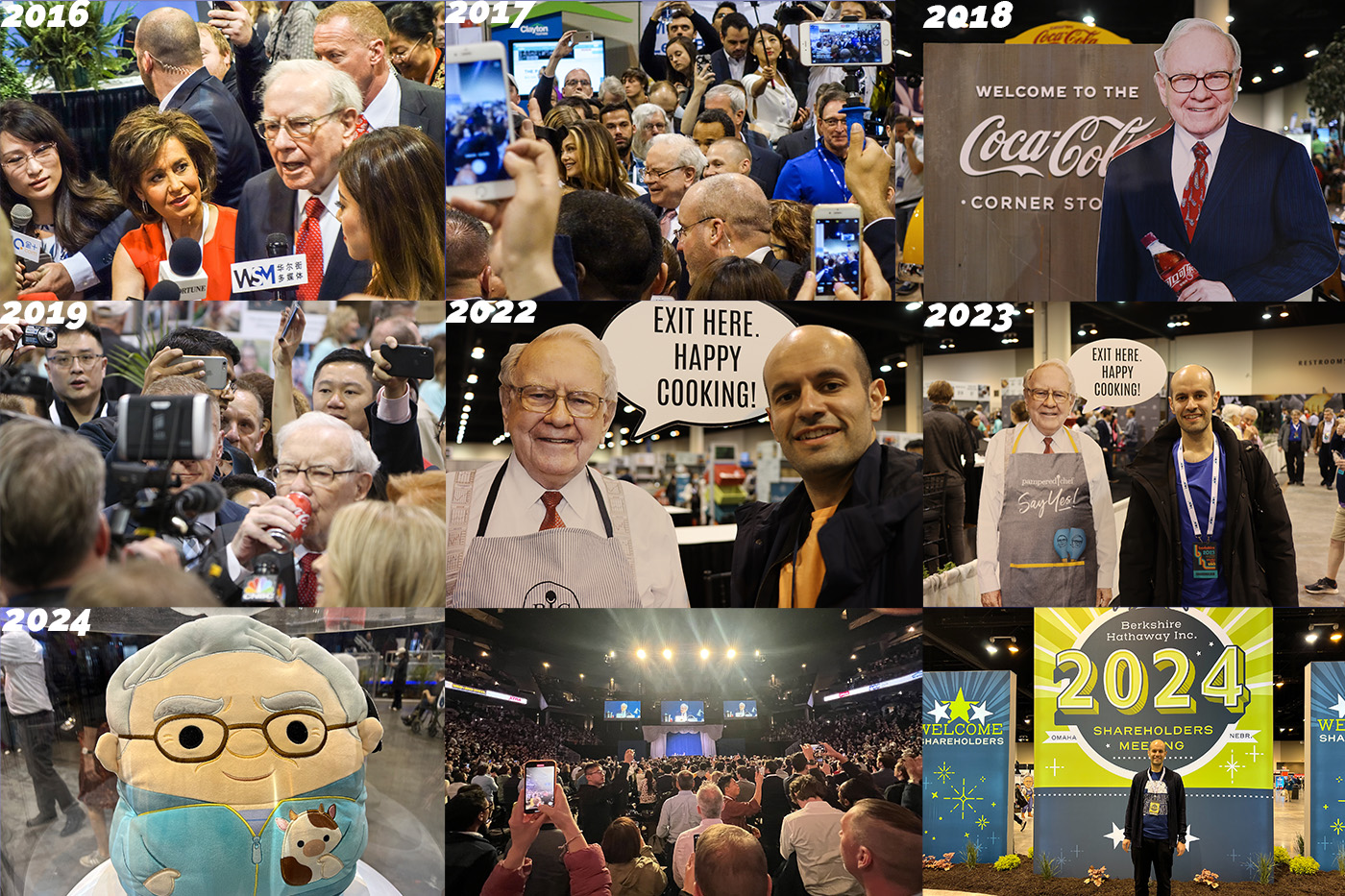It’s springtime in Omaha. It can mean only one thing, the Berkshire Hathaway shareholder meeting is back in town. It is a relatively unusual event in the financial calendar. Whilst obviously the primary purpose is to discuss how Berkshire Hathaway has been performing over the past year, it also has somewhat of a festival vibe (although admittedly without the singing and the dancing). It has historically been an opportunity for Warren Buffett and his late business partner Charlie Munger to impart their wisdom about life and investing which they accrued over many decades, responding to various questions from the audience. Admittedly the Berkshire Hathaway approach to investing is far removed from any sort of quant based investing as you can get. However, from a personal perspective, there is a lot to learn from the way that both Buffett and Munger have approached investing, even for quants. I’ll attempt to summarise some of my takeaways from attending the event, although, for brevity I have not included all of the discussions which took place during the event.
This shareholder meeting was sadly the first one since the passing of Charlie Munger, and the event began with a film honouring his life, intersplicing clips of Charlie in younger days alongside those of him during various shareholder meeting, as well as some more light hearted clips with both Buffett and Munger. The film received a standing ovation from the audience. Throughout the meeting, Buffett recalled his time with Charlie, and in touching moment, he called out Charlie’s name to answer a question in a slip. Alongside Warren Buffett, sat Greg Able, vice-chairman of non-insurance operations for Berkshire Hathaway and Ajit Jain, Vice Chairman of Insurance Operations for Berkshire Hathaway.
Buffett began official proceedings by discussing the performance of Berkshire Hathaway over the past quarter comparing it to the same quarter in 2023. It was a better than average quarter for insurance but he noted this did not mean that it was possible to take insurance earnings multiplied by 4 to extrapolate across the rest of the year. Railroad earnings were down modestly and Buffett suggested they should be earning more given current traffic conditions. Indeed the theme of the relative underperform of the railroad business versus competitors came up during the Q&A session as well.
One the big talking points was the Berkshire Hathaway selling some of its holdings in Apple. The question was asked at exactly the same point that there was a live camera panned over to Tim Cook, who was attending the event. Buffett said that unless something dramatic happens, Berkshire Hathaway would still likely have Apple stock as his largest investment in the future, but he also didn’t mind building his cash position in current conditions. He also suggested that it was likely that he didn’t mind paying taxes on the Apple gains, which at 21% was less than the 52% in the past. However, he noted that something has to give with current fiscal policy and higher taxes are likely as a result.
He later elaborated on his views on the US fiscal situation, in answer to question asking whether the world would continue to absorb US debt. Whilst he began by saying he didn’t know, he felt that it would be acceptable for a long time time because there was no alternative. What would threaten it, was if inflation was let loose. He recalled Volcker’s dilemma where he acted during a period of even higher inflation than that experienced over recent years. At the time it wasn’t the quantity of US debt, it was inflation and future value of the dollar which was the concern. Buffett didn’t worry about about the quantity, more about the fiscal deficit (despite the quipping that he was not a worrier).
He questioned the market’s focus on the Fed. Instead, he felt that people should be focusing on the fiscal deficit. He believed that Powell was a “very very wise man”, but ultimately he doesn’t control fiscal policy, and he could only send out disguised pleas about the matter to the politicians.
One subject which came up a number of times was that of AI and its potential impact. Buffett freely admitted he doesn’t understand how works. Ultimately the AI genie had been let out of the bottle. It could be used for good or indeed bad purposes. He gave a parallel with nuclear weapons and how that genie had been let out of the bottle in WWII. He gave a very specific example where he saw a video generated using AI of himself, which even he couldn’t tell was a fake.
When asked what advice he would give that everybody needs to hear, Buffett said, it was that you were lucky to live in America. If you get lucky, like Charlie and himself, it was to find stuff which is interesting when you’re young. On the subject of luck Buffett quipped that his greatest skill had been avoiding bad luck, but that’s luck too. He said it was key to make the most of your luck when you get it.
Buffett also paid tribute to Ruth Gottesman, a Berkshire Hathaway shareholder, who had donated 1bn USD to the Albert Einstein College of Medicine to ensure that students there would receive free tuition. Many Berkshire Hathaway shareholders had made donations, often anonymously, or not requiring the recognition of changing the names of buildings etc.
Will I back next year for Berkshire Hathaway’s shareholder meeting in 2025. I sincerely hope so!
